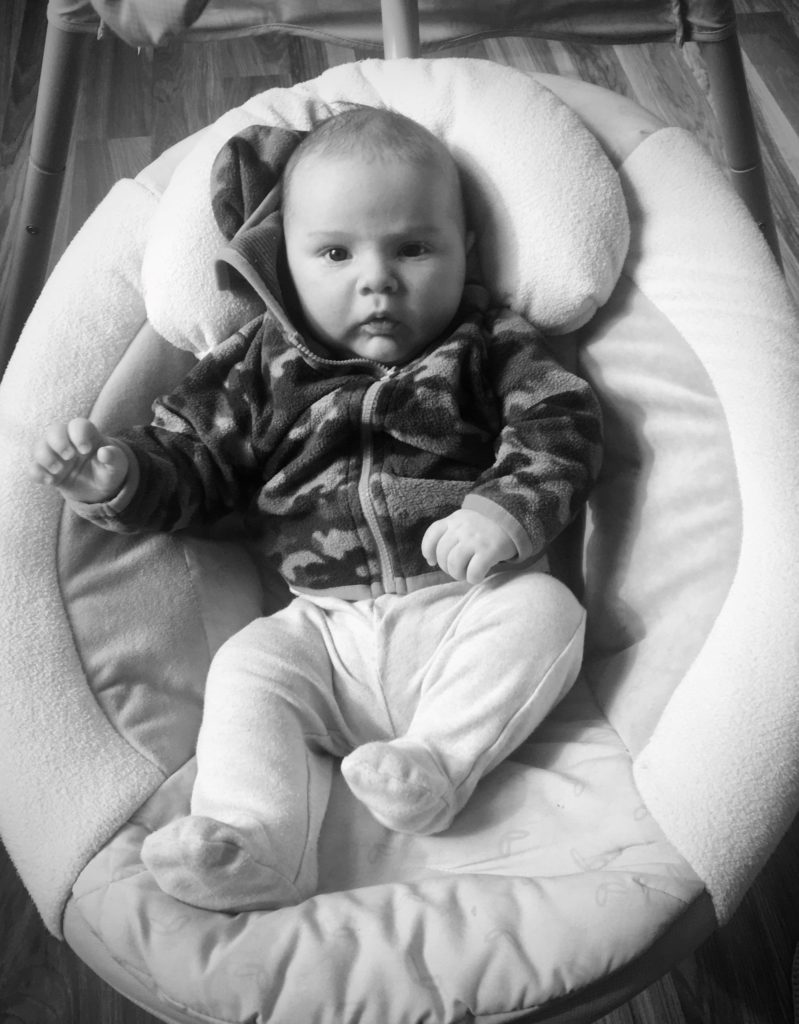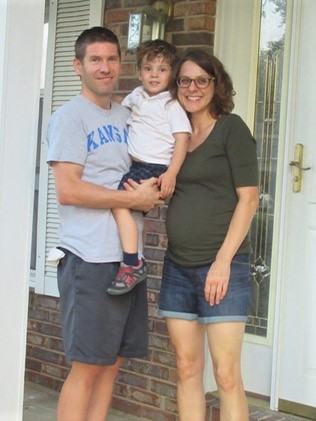I just packed away a piece of baby furniture. This always comes with a whiff of nostalgia—there’s not much warning when one stage ends and another begins. We take pictures of beginnings—the first step, the first bite of peas—but endings aren’t usually so ceremonious. The change happens gradually until one day we realize, Hey, when did he get too big for that bouncy chair?
But this ending felt even more nostalgic than most, because this was no ordinary bouncy seat. It was my Jeremiah-inspired bouncy seat.
The scene, two years ago: I was on the wrong side of 40 and had gone through a miscarriage after having our first son. We were coming up on a year after that loss, and I wondered if it was time to throw in the hope towel and accept that we would have only one child.
Around this time we got a recall notice for Graham’s bassinet. We could no longer get a reimbursement or a direct replacement, but they would send us another product of our choice. I tried not to think too much about the fact that BABIES HAD DIED IN THE VERY BASSINET MY SON HAD SLEPT IN and started scanning the catalog for something suitable for a toddler.
Before I placed my order, however, I was frozen in place by a passage from the book of Jeremiah.
Here’s the context: God’s people were under attack by the Babylonians, and the prophet Jeremiah was in prison. God had just given him a message that his beloved city would fall; the Israelites would be defeated and deported to enemy territory. In other words: it was the worst possible time for a real estate acquisition.
But that’s exactly what God asked him to do: buy a field in his homeland, the one that was about to be conquered.
Jeremiah said:
Though the city will be given into the hands of the Babylonians, you, Sovereign Lord, say to me, “Buy the field with silver and have the transaction witnessed.”
Jeremiah 32:25
Why would God tell Jeremiah to do such a thing? Why waste money on land that’s about to be seized by your archnemesis?
In a word: hope.
God was saying, essentially, “One day my people will return to this land. Even after the worst happens, there is still reason to hope.”
It’s one thing to give a theoretical nod to hope. It’s another to invest in it with real dollars. God might as well have been telling Jeremiah, “Put your money where your hope is.”
Meanwhile, God was whispering in my own ear: Buy the field. This wasn’t a time to be practical; it was a time to hope.
At first I fought the nudge. What if we ordered a baby item and never had occasion to use it? Wouldn’t it hurt to keep stubbing my toe (and my heart) on it every time I went to the basement?
But the whisper wouldn’t go away: Buy the field. (Or the bouncy seat. Whatever.)
And so the chair sat in the basement, along with my hope, for some time.
It was risky, to be sure. We had no guarantees that the chair would get filled. But we did have a guarantee about God’s heart. So we waited and we hoped, the best we could.
I want to be the first to acknowledge that hope doesn’t guarantee a happy ending. We don’t always get the yes we long for. But in this case, God graciously brought us back to the field we’d bought. He filled that bouncy chair with an even bouncier boy.
And we can’t help ourselves: sometimes we still call him Baby Hope.
Hope acts on the conviction that God will complete the work that he has begun even when the appearances, especially when the appearances, oppose it.
Eugene Peterson



